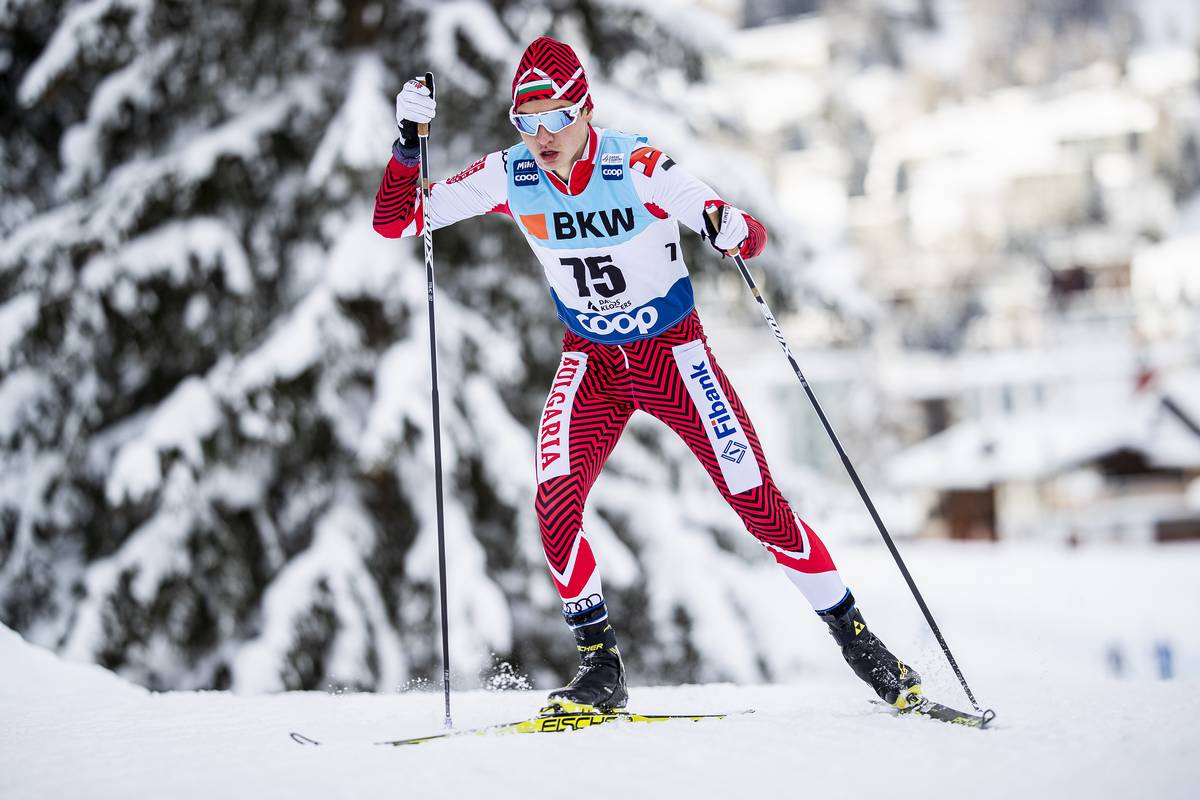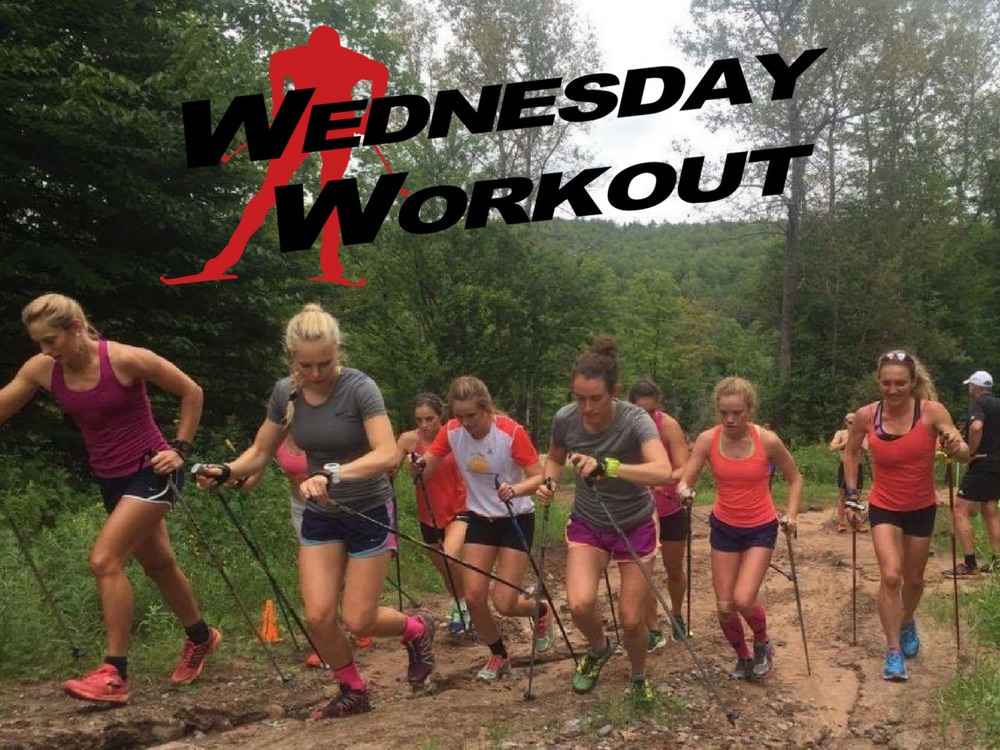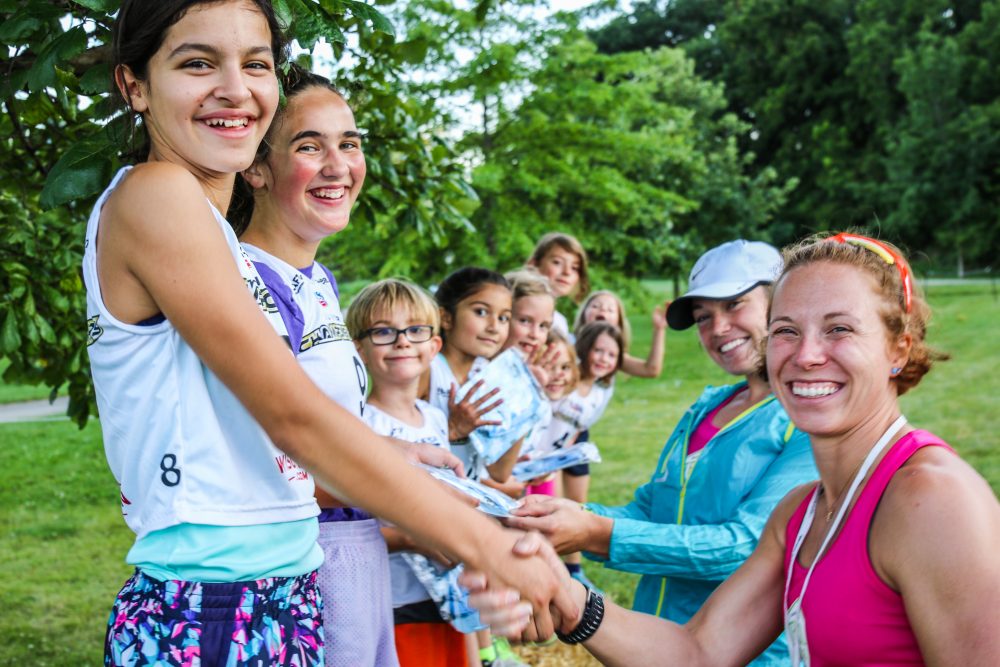
The U.S. team at biathlon World Youth and Junior Championships in Kontiolahti, Finland, is hoping that things will heat up in the next few days – both literally and figuratively.
“It has been pretty cold all week but it warmed up today,” American racer Anna Kubek told FasterSkier.
At World Cup races one last weekend, the Finnish venue flirted with legal temperatures and athletes swaddled themselves in layer upon layer of clothes, as well as rendering their faces expressionless with protective physio tape. For most of the juniors’ training days, similar conditions prevailed.
Today, temperatures were listed in the balmy mid-20’s Fahrenheit at race time, and the trend should continue for the rest of the week.
Kontiolahti provided plenty of other challenges on this opening day of competition, however. The youth biathletes, who were contesting individual-format races, had to contend with strong and shifting winds as well as uncharacteristically soft snow.
Julia Bartolmaes of Germany and Aristide Begue of France had no trouble racing through the powder, besting fields of over 90 athletes each, all born no earlier than 1993, en route to collecting wins of 18 and 47 seconds respectively in their 10 and 12.5 k races.

For the U.S., the individual races weren’t a wash – but they weren’t spectacular either.
“Today was pretty good day for us and better than last year when we started World juniors,” said U.S. Biathlon Association coach Algis Shalna, who also works at the Ethan Allen Biathlon Club in Jericho, Vermont, and with Vermont Collegiate Biathlon. “The championships just started and we’re hope for more good results.”
The team was hampered by poor shooting, with the best shooter, Sam Dougherty, missing five shots and the worst, Jake Prince, twelve of a possible twenty. Plenty of racers struggled on the range – only the winner had a single penalty, and only the runner-up had just two – but the U.S. was left wishing it had shot better.
“With the increased psychological element of a one minute penalty for each missed shot, it’s easy to look back with a woulda-shoulda-coulda attitude,” Dougherty told FasterSkier, before adding that he was relatively happy with his performance given the conditions.
The top two results, predictably, came from two similarly-named Americans who had attended the championships last year: Sean Doherty of Conway, New Hampshire, and Dougherty, who is a native of far-away Anchorage, Alaska. Doherty placed 26th and Dougherty 28th after missing seven and five shots, respectively, and receiving an additional minute of time for each penalty.
“These results we are considering pretty good for our youth group,” Shalna said.
Doherty and 55th-place Nick Proell are the youngest members of the U.S. men’s squad, but they both already have international experience this season after representing their country at the Youth Olympic Games last month.

Doherty in particular was expected to succeed in Kontiolahti; as the top qualifier to the Youth Olympic Games, he hadn’t even attended World Junior trials. And in Innsbruck, he finished 12th and 14th in the sprint and pursuit races before turning in a seminal leg of the third-place U.S. mixed-sport relay.
In Kontiolahti on Monday, seven penalties were too much for Doherty to overcome; his ski time was the 27th-fastest, and he ended up just under six minutes behind Begue
Dougherty, who also competed at World Juniors last year, was 17 seconds and two places behind him. Both collected their best World Juniors finishes to date.
“This time around at World Juniors has been a lot more relaxed for me. I know what to expect so I can now focus solely on performance,” Dougherty said.
Dougherty, who in his last year as a youth is considerably bigger than some of his competitors, said that the conditions weren’t ideal for him – “I had to muscle my way through the course a little more than the smaller racers” – and that he considers the individual his weakest discipline, so he’s hoping to improve on his finish in the upcoming races.
As for the wind, which is always a factor in Kontiolahti? It didn’t faze him.
“I’ve become accustomed to shooting in all types of wind from my years in Anchorage, and I’m comfortable with making mid-race sight adjustments,” he explained. “This came in handy today with the wind being so erratic.”
Unlike Doherty, Dougherty hasn’t competed in any high-level biathlon races this year. In fact, he’s barely done any biathlon races in general. A student at Montana State University, Dougherty tried to walk on to the varsity ski team, but was turned down.

“The majority of my training this season has been on my own. It wasn’t an ideal situation, but I’m happy that this hasn’t slowed me down any,” he said. “I’m a firm believer that nordic performance above all is key to being a good biathlete, and with that mentality I’ve entered every nordic race available to me this season.
“Due to school I haven’t been able to travel for Nor-Ams or any other upper-level races this year, so my biathlon racing experience this year has been extremely limited,” he continued. “One day I will have the time and funding to establish myself on the Nor-Am circuit.”
Dougherty’s fellow Alaskan, Prince, rounded out the scoring by placing 83rd.
The Canadian team was led by Christian Gow, who placed 11th; he could not be reached for comment. Gow was followed by Albert Bouchard in 36th, Stuart Harden in 38th, and Carsen Campbell in 41st.



